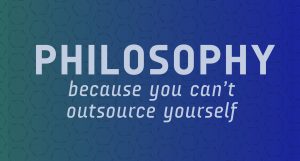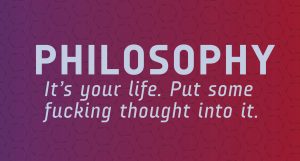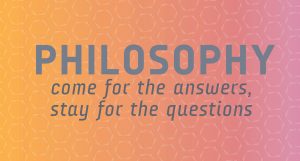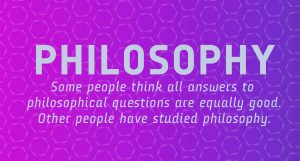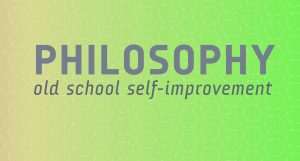The Demand for Philosophers
Last week I was part of a panel invited to discuss “The State of Philosophy: Challenges, Threats, and Strategies” at the Eastern Division Meeting of the American Philosophical Association (APA).
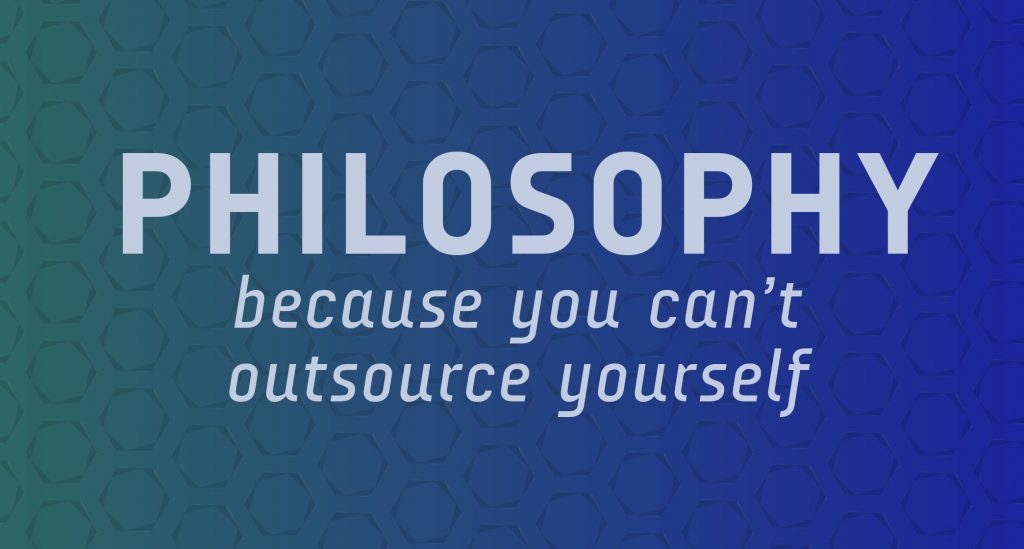
I and my co-panelists each shared brief remarks on various topics. Sally Haslanger (MIT) discussed threats to academic freedom, particularly the academic freedom of scholars working on topics related to diversity and equality, which is being increasingly targeted by rightwing politicians and activists. Fritz McDonald (Oakland) enjoined philosophers to get involved in the APA and volunteer for positions and committees in the organization. Eric Schwitzgebel (UC Riverside) shared some of his valuable work on demographic trends in philosophy, focusing on philosophy majors (see here).
I talked about the demand for people with philosophy PhDs in the U.S. (for the purposes of the discussion, “philosophers”).
I first noted some evidence that the demand for philosophers is declining. Cuts to philosophy departments and the elimination of philosophy degree programs (see here for some examples) continue, and though new programs are occasionally created, losses seem to outweigh the gains. The number of tenure-track jobs in philosophy has not been growing over the long term and is down compared to ten years ago (464 advertised jobs in 2011-12 cycle compared to 345 in the 2021-22 cycle, 547 in 2012-13 compared to 346 in 2022-23, 356 in 2013-14 compared to a projected 332 in 2023-24).
What are some possible causes of the decreased demand for philosophers?
- Enrollment declines at some schools, causing budget cuts and closures.
- Declines in the percentage of bachelor’s degrees in the humanities conferred by four-year institutions. (Though philosophy has “held steady at 0.39%-0.40% since 2015-2016,” it is not clear that administrators are going to be looking at such fine-grained detail when setting the agenda for cuts.)
- In a majority of U.S. states, there have been decreases in state expenditures on public colleges and universities (e.g., there was less spent by states on higher ed in 2020 than in 2008).
- With decreased state funding, many institutions are even more reliant on grants, and philosophers are not major grant-getters (the sciences bring in over 125 times more in grants than the humanities).
(In response to this point, Sally Haslanger rightly pointed out that philosophy departments may be a financial plus for universities as the revenue from philosophy enrollments may exceed the relatively small costs of having a philosophy department; however, Fritz McDonald, if I recall accurately, raised the question of whether, of the various disciplines for which this cost-benefit analysis is correct, philosophy is particularly good in this regard—say, in comparison to English, which might be just as cheap but with more enrollments.)
There are also broader social changes that I think are relevant to the demand for philosophers. These are changes that philosophers can do little to nothing about, and it is not clear that all of them are, on balance, changes for the worse (though they may be). These include:
- Fracturing of a hegemonic cultural canon.
There’s no longer a manageable body of cultural knowledge that is widely understood to be what an educated person ought to know, and so whatever role philosophers played in introducing people to that is diminished. Some causes of this seem to be:- “Entertainment explosion”: the massive increase in a wider array of easily accessible opportunities for entertainment means there’s less of a shared culture. People have more options, a greater ability to exercise choice among them, and more of a capacity to easily create entertainment for others (social media).
- Both good (anti-prejudicial) and bad (anti-judgment) forms of cultural egalitarianism means it is harder to make the case that the bits of culture philosophy focuses on are especially worth attention; the perceived value of informed cultural and personal criticism/judgment is declining.
- Vocationalist creep.
Universities seem to be increasingly sending the message that their chief aim is to prepare students for the job market, which is both a self-fulfilling prophecy and a self-destructive survival strategy.- It’s self-fulling in that it lends the reinforcing authority of the university itself to the instrumentalization of education. As universities increasingly understand themselves as handmaidens to the job market, aspects of education not obviously or directly connected to the employment are deprioritized. The number of students choosing a liberal arts major goes down, while the number of students choosing a business major go up (NCES).
- It’s self-destructive in that it positions the university as an increasingly inefficient middleman between employee and employer. Already some universities are offering training modules by corporations as part of their curriculum. How long until Google Certifications are seen as a much better value than a BA, and more and more students skip the university altogether?
- Technology.
- Information is widely available, and in many domains more people have more opportunity to learn facts and skills outside institutional settings than ever before because of information technology. (People in general may not be especially skillful at sorting and assessing the abundance of information available to them, but it’s unclear how often one needs to apply such skills, given their aims.)
- Skills taught at universities may increasingly thought of as unnecessary to learn because we can automate them. Search engines are ways of automating research, and now we have large language models (LLMs) for automating our writing. (What these means may lack, perhaps glaringly clear to some experts, is much less visible to their typical user than what said means deliver.)
- Education has trouble competing for attention with all of the world’s entertainment and all of the friends of each student, which each student now, via their phone, has access to at all times. The entertainment explosion has led to reduced attention spans, resulting in professors lowering standards, in turn resulting in lower quality output from students, and so decreasing the educational value of college courses.
- Artificial Intelligence (AI) will be a cheaper alternative teacher, probably starting with courses in which there is no physical equipment or activity. (AIs replacing course instructors may be the most conservative prediction regarding how AI will alter education.)
Additionally, there is no major growth in demand for philosophers outside of academia. While there are a number of success stories of philosophy PhDs finding great non-academic jobs (I should remind people of this page) many of these are one-offs which do not indicate burgeoning trends of particular industries finding themselves in need of a substantial number of philosophers. (AI may be a sector in which a lot of philosophers get hired but it is probably too early to tell; it is not clear that the increased demand in academia for philosophers working on AI-related topics means an increase in overall demand for philosophers, or merely a change in which areas of specialization experts are being sought.)
In light of these and other factors that may contribute to a lowered demand for philosophers, what, if anything should we do?
I acknowledge that some may argue that this is not a problem worth doing anything about. The status quo is far from perfect, after all, and change is inevitable. Yet I expect most people reading this—most philosophers—have several reasons for thinking that a diminished demand for philosophers is worth addressing, if possible. I’ll continue under the assumption that that’s correct.
In thinking about what to do, we should avoid the futile. We cannot stop or turn back technology. We cannot change the major economic institutions of society. Rather, we must be realistic about existing and likely technology and we must work within our economic institutions. As distasteful as it may seem to some of you, think of us philosophers as having a “product” we’re trying to sell. That product is philosophy. It comes in a variety of formats: courses, articles, books, advising, videos, podcasts, etc. What is our marketing strategy?
I’m not a marketing expert, so what follows is more a guess than anything else.
It seems that, fundamentally, our market is undergraduates. This is not because they’re the only consumers of philosophy, but they’re the consumers on which so much of our activities depend. At most institutions, being employed as a philosopher means (among other things) teaching philosophy to undergraduates; doing that affords some people the opportunity to engage in philosophical research. Undergraduate enrollments also affect, through multiple mechanisms over the long term, graduate enrollments, which also in turn affect the extent to which philosophy professors can focus on research. Further, it would seem reasonable to think that the number of undergraduates who take philosophy courses is related to the number of people in the general public who form a non-academic constituency for philosophy which is beneficial to philosophy politically and economically.
So we ought to focus on how philosophy and the places philosophy is “sold” (that is, colleges and universities) are “advertised” to that core market of current and prospective undergraduates. Universities and colleges are their own marketers, so we can ask whether we think their marketing strategy is effective and sustainable.
I don’t think it is. By focusing increasingly on conveying the message that they are ideal institutions for preparing students for jobs, universities and colleges are selling themselves short. Universities have so much more to offer than that, and businesses can and do train their new employees, anyway. Better for universities to more enthusiastically promote what they, compared to others, are especially well positioned to deliver. What is that? In short: self-improvement.
While job training makes you better for others, self-improvement makes you better, primarily, for yourself. Given the high concentration of self-obsession in our cultural atmosphere, this should be an easier sell than ever (even if it’s not easy). The idea that education is a form of self-improvement is an old one, but here’s a relatively recent version of it I’ve noted here before, from Talbot Brewer (UVA):
What happens in [college], when it’s in good working order, is a kind of intensification of a form of reflective self-cultivation that can and ought to be a continuous life activity. It is the stuff of a good life, not some mere instrumental means. It can be intertwined with, and can deepen, almost any subsequent life activity (including many forms of work and political engagement).
If universities trumpeted the value of “reflective self-cultivation” and spent as much energy advertising how good they are at producing opportunities for reflection and self-cultivation as they do on student employability, that could send a loud and valuable message to students. So I think that one thing we should do is encourage universities and colleges to better promote the distinctive value of philosophy and the study of the liberal arts more broadly.
But how do we get universities to take up the mission of sending that message? What you need are people in positions of power who care about sending that message. That’s us (but not just us: there are potential allies across a wide range of disciplines). And so it would serve philosophy well if more philosophers took up administrative positions at the colleges and universities. We don’t need philosopher kings, but philosopher deans and associate deans, philosopher provosts, and philosopher university presidents would be helpful.
This point was reinforced by Andy Cullison (Cincinnati) at the session, who also noted that there seems to be some resistance among philosophers towards taking up administrative positions. He recommended that the APA hold sessions about or with philosophers in administrative positions. He also urged that someone collect more data about the number of philosophy PhDs in college or university-level administrative positions (any volunteers?).
(Some recent examples were mentioned. My former colleague, Jennifer Frey, recently became the founding dean of the Honors College at the University of Tulsa, which features a curriculum focused on philosophical and other classic texts. Ann Cudd is the new president of Portland State University.)
I’ve sketched in rather broad strokes here both diagnosis and prescription. I’ll admit I’m not sure how feasible my suggestion is, or how much of a difference it might make. I’d be happy to hear you thoughts on it and the general situation we face. Your suggestions as to what ought to be done, if anything, are, as usual, welcome.
Related: “Against Reducing the Number of Philosophy PhDs“
The post The Demand for Philosophers first appeared on Daily Nous.
